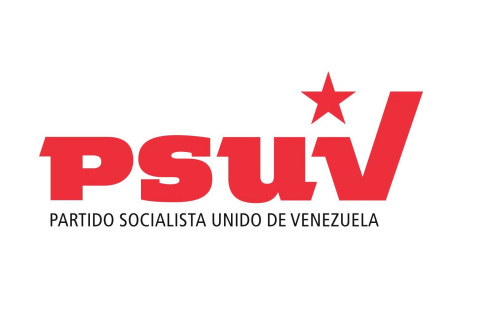委内瑞拉统一社会主义党The United Socialist Party of Venezuela

The United Socialist Party of Venezuela (Partido Socialista Unido de Venezuela, PSUV) is the dominant ruling political organization in Venezuela, established on January 20, 2008. Born from the initiative of late President Hugo Chávez, the PSUV was formed to consolidate various left-wing and socialist factions under a single banner, with the aim of advancing the Bolivarian Revolution and constructing what they term "21st Century Socialism."
The party's ideology is firmly rooted in anti-capitalist and anti-imperialist sentiments, embracing socialist, humanist, and internationalist principles. It seeks to defend the gains of the Bolivarian Revolution, prioritize the interests of the working class and the people, and work towards a society characterized by equality, freedom, and human dignity. PSUV's foundation was a strategic move to institutionalize and perpetuate the political movement initiated by Chávez, ensuring continuity of his policies beyond his tenure.
With a reported membership of over 763,000 as of earlier records, the PSUV has demonstrated a strong organizational structure, holding its first extraordinary congress in 2009-2010, where it adopted its Constitution, Declaration of Principles, and Fundamental Program. These documents outline the party's objectives, including deepening participatory democracy, promoting social justice, and fostering Latin American integration.
Under the leadership of President Nicolás Maduro, who succeeded Chávez in 2013, the PSUV has faced significant domestic and international challenges, including economic crises, political polarization, and international sanctions. The party's relationship with external actors, particularly with China, has been highlighted through exchanges and visits, with high-ranking members like PSUV Vice President Adán Chávez, brother of the late president, expressing admiration for China's development model and its enrichment of socialist theory.
The PSUV's governance has been marked by efforts to redistribute wealth, expand social programs, and assert national sovereignty against perceived external threats. However, it has also been criticized for democratic deficits, human rights concerns, and economic mismanagement. Amidst a complex geopolitical landscape, the party continues to navigate the challenges of maintaining its socialist project while addressing the urgent needs of the Venezuelan population.
In summary, the United Socialist Party of Venezuela represents a pivotal force in the country's contemporary political scene, striving to uphold the legacy of Hugo Chávez and advance its vision of socialist transformation amidst domestic strife and international pressures. Its influence extends beyond Venezuela's borders, engaging in international dialogue and cooperation, particularly with socialist and progressive movements worldwide.
文献出处:

 CN
CN

